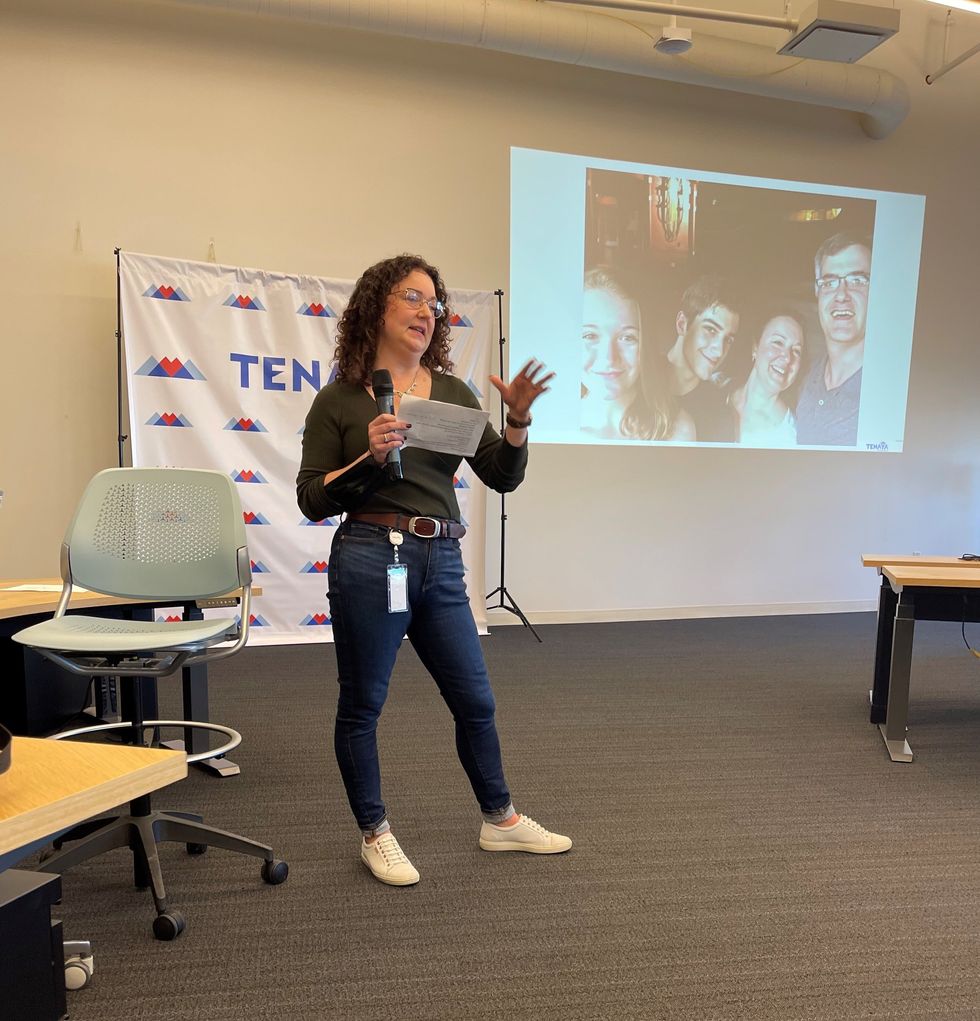Is There a Blind Spot in the Oversight of Human Subject Research?

A scientist examining samples.
Human experimentation has come a long way since congressional hearings in the 1970s exposed patterns of abuse. Where yesterday's patients were protected only by the good conscience of physician-researchers, today's patients are spirited past hazards through an elaborate system of oversight and informed consent. Yet in many ways, the project of grounding human research on ethical foundations remains incomplete.
As human research has become a mainstay of career and commercial advancement among academics, research centers, and industry, new threats to research integrity have emerged.
To be sure, much of the medical research we do meets exceedingly high standards. Progress in cancer immunotherapy, or infectious disease, reflects the best of what can be accomplished when medical scientists and patients collaborate productively. And abuses of the earlier part of the 20th century--like those perpetrated by the U.S. Public Health Service in Guatemala--are for the history books.
Yet as human research has become a mainstay of career and commercial advancement among academics, research centers, and industry, new threats to research integrity have emerged. Many flourish in the blind spot of current oversight systems.
Take, for example, the tendency to publish only "positive" findings ("publication bias"). When patients participate in studies, they are told that their contributions will promote medical discovery. That can't happen if results of experiments never get beyond the hard drives of researchers. While researchers are often eager to publish trials showing a drug works, according to a study my own team conducted, fewer than 4 in 10 trials of drugs that never receive FDA approval get published. This tendency- which occurs in academia as well as industry- deprives other scientists of opportunities to build on these failures and make good on the sacrifice of patients. It also means the trials may be inadvertently repeated by other researchers, subjecting more patients to risks.
On the other hand, many clinical trials test treatments that have already been proven effective beyond a shadow of doubt. Consider the drug aprotinin, used for the management of bleeding during surgery. An analysis in 2005 showed that, not long after the drug was proven effective, researchers launched dozens of additional placebo-controlled trials. These redundant trials are far in excess of what regulators required for drug approval, and deprived patients in placebo arms of a proven effective therapy. Whether because of an oversight or deliberately (does it matter?), researchers conducting these trials often failed in publications to describe previous evidence of efficacy. What's the point of running a trial if no one reads the results?
It is surprisingly easy for companies to hijack research to market their treatments.
At the other extreme are trials that are little more than shots in the dark. In one case, patients with spinal cord injury were enrolled in a safety trial testing a cell-based regenerative medicine treatment. After the trial stopped (results were negative), laboratory scientists revealed that the cells had been shown ineffective in animal experiments. Though this information had been available to the company and FDA, researchers pursued the trial anyway.
It is surprisingly easy for companies to hijack research to market their treatments. One way this happens is through "seeding trials"- studies that are designed not to address a research question, but instead to habituate doctors to using a new drug and to generate publications that serve as advertisements. Such trials flood the medical literature with findings that are unreliable because studies are small and not well designed. They also use the prestige of science to pursue goals that are purely commercial. Yet because they harm science- not patients (many such studies are minimally risky because all patients receive proven effective medications)- ethics committees rarely block them.
Closely related is the phenomenon of small uninformative trials. After drugs get approved by the FDA, companies often launch dozens of small trials in new diseases other than the one the drug was approved to treat. Because these studies are small, they often overestimate efficacy. Indeed, the way trials are often set up, if a company tests an ineffective drug in 40 different studies, one will typically produce a false positive by chance alone. Because companies are free to run as many trials as they like and to circulate "positive" results, they have incentives to run lots of small trials that don't provide a definitive test of their drug's efficacy.
Universities, funding bodies, and companies should be scored by a neutral third-party based on the impact of their trials -- like Moody's for credit ratings.
Don't think public agencies are much better. Funders like the National Institutes of Health secure their appropriations by gratifying Congress. This means that NIH gets more by spreading its funding among small studies in different Congressional districts than by concentrating budgets among a few research institutions pursuing large trials. The result is that some NIH-funded clinical trials are not especially equipped to inform medical practice.
It's tempting to think that FDA, medical journals, ethics committees, and funding agencies can fix these problems. However, these practices continue in part because FDA, ethics committees, and researchers often do not see what is at stake for patients by acquiescing to low scientific standards. This behavior dishonors the patients who volunteer for research, and also threatens the welfare of downstream patients, whose care will be determined by the output of research.
To fix this, deficiencies in study design and reporting need to be rendered visible. Universities, funding bodies, and companies should be scored by a neutral third-party based on the impact of their trials, or the extent to which their trials are published in full -- like Moody's for credit ratings, or the Kelley Blue Book for cars. This system of accountability would allow everyone to see which institutions make the most of the contributions of research subjects. It could also harness the competitive instincts of institutions to improve research quality.
Another step would be for researchers to level with patients when they enroll in studies. Patients who agree to research are usually offered bromides about how their participation may help future patients. However, not all studies are created equal with respect to merit. Patients have a right to know when they are entering studies that are unlikely to have a meaningful impact on medicine.
Ethics committees and drug regulators have done a good job protecting research volunteers from unchecked scientific ambition. However, today's research is plagued by studies that have poor scientific credentials. Such studies free-ride on the well-earned reputation of serious medical science. They also potentially distort the evidence available to physicians and healthcare systems. Regulators, academic medical centers, and others should establish policies that better protect human research volunteers by protecting the quality of the research itself.
In this week's Friday Five, new research that could help prevent Alzheimer's. Plus, why you should care about smart senior towns, how to reverse being drunk, money can make you happier if you're this type of person, and personalized anxiety medicine.
The Friday Five covers five stories in research that you may have missed this week. There are plenty of controversies and troubling ethical issues in science – and we get into many of them in our online magazine – but this news roundup focuses on scientific creativity and progress to give you a therapeutic dose of inspiration headed into the weekend.
Here are the promising studies covered in this week's Friday Five, featuring interviews with Dr. Christopher Martens, director of the Delaware Center for Cogntiive Aging Research and professor of kinesiology and applied physiology at the University of Delaware, and Dr. Ilona Matysiak, visiting scholar at Iowa State University and associate professor of sociology at Maria Grzegorzewska University.
Listen on Apple | Listen on Spotify | Listen on Stitcher | Listen on Amazon | Listen on Google
- Could this supplement help prevent Alzheimer's?
- Why you should care about smart senior towns
- Here's how to reverse being drunk
- Money can make you happy - if you're this type of person
- Personalized anxiety medicine
As gene therapies and small molecule drugs are being studied in clinical trials, companies increasingly see the value in hiring patients to help explain the potential benefits.
As a child, Wendy Borsari participated in a health study at Boston Children’s Hospital. She was involved because heart disease and sudden cardiac arrest ran in her family as far back as seven generations. When she was 18, however, the study’s doctors told her that she had a perfectly healthy heart and didn’t have to worry.
A couple of years after graduating from college, though, the Boston native began to experience episodes of near fainting. During any sort of strenuous exercise, my blood pressure would drop instead of increasing, she recalls.
She was diagnosed at 24 with hypertrophic cardiomyopathy. Although HCM is a commonly inherited heart disease, Borsari’s case resulted from a rare gene mutation, the MYH7 gene. Her mother had been diagnosed at 27, and Borsari had already lost her grandmother and two maternal uncles to the condition. After her own diagnosis, Borsari spent most of her free time researching the disease and “figuring out how to have this condition and still be the person I wanted to be,” she says.
Then, her son was found to have the genetic mutation at birth and diagnosed with HCM at 15. Her daughter, also diagnosed at birth, later suffered five cardiac arrests.
That changed Borsari’s perspective. She decided to become a patient advocate. “I didn’t want to just be a patient with the condition,” she says. “I wanted to be more involved with the science and the biopharmaceutical industry so I could be active in helping to make it better for other patients.”
She consulted on patient advocacy for a pharmaceutical and two foundations before coming to a company called Tenaya in 2021.
“One of our core values as a company is putting patients first,” says Tenaya's CEO, Faraz Ali. “We thought of no better way to put our money where our mouth is than by bringing in somebody who is affected and whose family is affected by a genetic form of cardiomyopathy to have them make sure we’re incorporating the voice of the patient.”
Biomedical corporations and government research agencies are now incorporating patient advocacy more than ever, says Alice Lara, president and CEO of the Sudden Arrhythmia Death Syndromes Foundation in Salt Lake City, Utah. These organizations have seen the effectiveness of including patient voices to communicate and exemplify the benefits that key academic research institutions have shown in their medical studies.
“From our side of the aisle,” Lara says, “what we know as patient advocacy organizations is that educated patients do a lot better. They have a better course in their therapy and their condition, and understanding the genetics is important because all of our conditions are genetic.”
Founded in 2016, Tenaya is advancing gene therapies and small molecule drugs in clinical trials for both prevalent and rare forms of heart disease, says Ali, the CEO.
The firm's first small molecule, now in a Phase 1 clinical trial, is intended to treat heart failure with preserved ejection fraction, where the amount of blood pumped by the heart is reduced due to the heart chambers becoming weak or stiff. The condition accounts for half or more of all heart failure in the U.S., according to Ali, and is growing quickly because it's closely associated with diabetes. It’s also linked with metabolic syndrome, or a cluster of conditions including high blood pressure, high blood sugar, excess body fat around the waist, and abnormal cholesterol levels.
“We have a novel molecule that is first in class and, to our knowledge, best in class to tackle that, so we’re very excited about the clinical trial,” Ali says.
The first phase of the trial is being performed with healthy participants, rather than people with the disease, to establish safety and tolerability. The researchers can also look for the drug in blood samples, which could tell them whether it's reaching its target. Ali estimates that, if the company can establish safety and that it engages the right parts of the body, it will likely begin dosing patients with the disease in 2024.
Tenaya’s therapy delivers a healthy copy of the gene so that it makes a copy of the protein missing from the patients' hearts because of their mutation. The study will start with adult patients, then pivot potentially to children and even newborns, Ali says, “where there is an even greater unmet need because the disease progresses so fast that they have no options.”
Although this work still has a long way to go, Ali is excited about the potential because the gene therapy achieved positive results in the preclinical mouse trial. This animal trial demonstrated that the treatment reduced enlarged hearts, reversed electrophysiological abnormalities, and improved the functioning of the heart by increasing the ejection fraction after the single-dose of gene therapy. That measurement remained stable to the end of the animals’ lives, roughly 18 months, Ali says.
He’s also energized by the fact that heart disease has “taken a page out of the oncology playbook” by leveraging genetic research to develop more precise and targeted drugs and gene therapies.
“Now we are talking about a potential cure of a disease for which there was no cure and using a very novel concept,” says Melind Desai of the Cleveland Clinic.
Tenaya’s second program focuses on developing a gene therapy to mitigate the leading cause of hypertrophic cardiomyopathy through a specific gene called MYPBC3. The disease affects approximately 600,000 patients in the U.S. This particular genetic form, Ali explains, affects about 115,000 in the U.S. alone, so it is considered a rare disease.
“There are infants who are dying within the first weeks to months of life as a result of this mutation,” he says. “There are also adults who start having symptoms in their 20s, 30s and 40s with early morbidity and mortality.” Tenaya plans to apply before the end of this year to get the FDA’s approval to administer an investigational drug for this disease humans. If approved, the company will begin to dose patients in 2023.
“We now understand the genetics of the heart much better,” he says. “We now understand the leading genetic causes of hypertrophic myopathy, dilated cardiomyopathy and others, so that gives us the ability to take these large populations and stratify them rationally into subpopulations.”
Melind Desai, MD, who directs Cleveland Clinic’s Hypertrophic Cardiomyopathy Center, says that the goal of Tenaya’s second clinical study is to help improve the basic cardiac structure in patients with hypertrophic cardiomyopathy related to the MYPBC3 mutation.
“Now we are talking about a potential cure of a disease for which there was no cure and using a very novel concept,” he says. “So this is an exciting new frontier of therapeutic investigation for MYPBC3 gene-positive patients with a chance for a cure.
Neither of Tenaya’s two therapies address the gene mutation that has affected Borsari and her family. But Ali sees opportunity down the road to develop a gene therapy for her particular gene mutation, since it is the second leading cause of cardiomyopathy. Treating the MYH7 gene is especially challenging because it requires gene editing or silencing, instead of just replacing the gene.

Wendy Borsari was diagnosed at age 24 with a commonly inherited heart disease. She joined Tenaya as a patient advocate in 2021.
Wendy Borsari
“If you add a healthy gene it will produce healthy copies,” Ali explains, “but it won’t stop the bad effects of the mutant protein the gene produces. You can only do that by silencing the gene or editing it out, which is a different, more complicated approach.”
Euan Ashley, professor of medicine and genetics at Stanford University and founding director of its Center for Inherited Cardiovascular Disease, is confident that we will see genetic therapies for heart disease within the next decade.
“We are at this really exciting moment in time where we have diseases that have been under-recognized and undervalued now being attacked by multiple companies with really modern tools,” says Ashley, author of The Genome Odyssey. “Gene therapies are unusual in the sense that they can reverse the cause of the disease, so we have the enticing possibility of actually reversing or maybe even curing these diseases.”
Although no one is doing extensive research into a gene therapy for her particular mutation yet, Borsari remains hopeful, knowing that companies such as Tenaya are moving in that direction.
“I know that’s now on the horizon,” she says. “It’s not just some pipe dream, but will happen hopefully in my lifetime or my kids’ lifetime to help them.”

